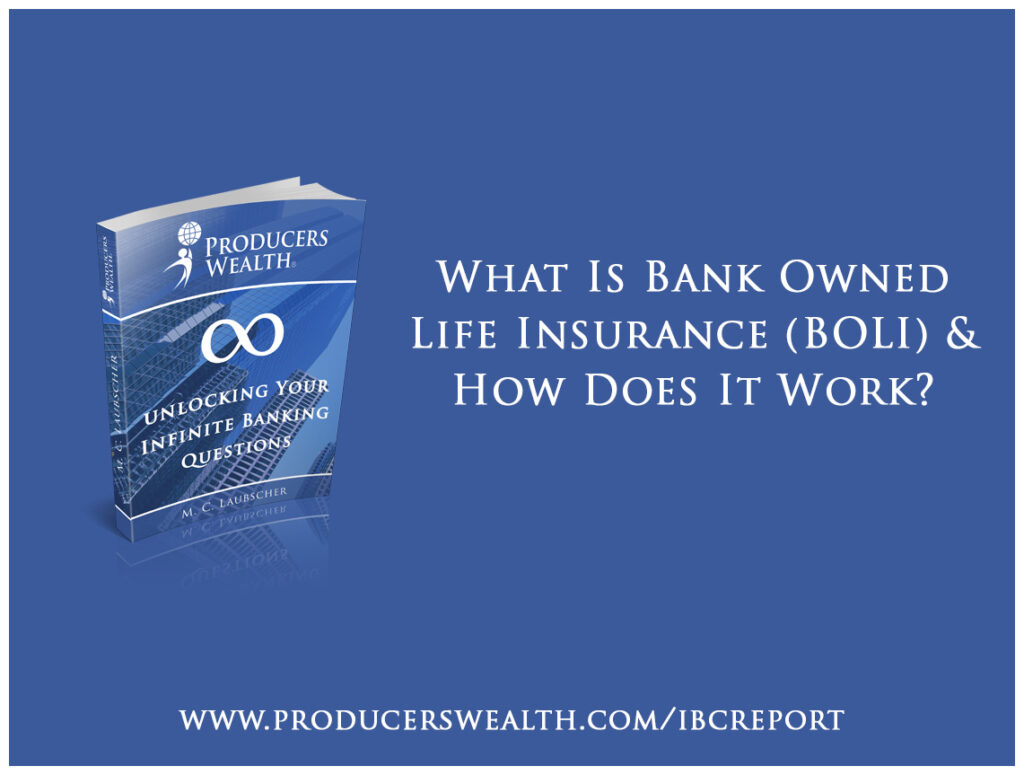
Bank-Owned Life Insurance (BOLI) is a type of life insurance purchased by banks where the bank is the beneficiary, and/or owner of the policy.
This means that the bank pays the policy’s premiums and is the recipient of the death benefits when the insured party (typically an executive or group of executives) passes away.
BOLI policies are used by banks as a way to offset the costs of providing employee benefits. The income generated from these policies is generally tax-free, which makes them an attractive investment for many banks.
The amount of a bank’s Tier 1 capital that goes into life insurance, specifically Bank-Owned Life Insurance (BOLI), can vary significantly depending on the bank’s size, risk profile, regulatory compliance, and strategic objectives.
It’s worth noting that BOLI policies are a common tool for many banks. BOLI policies can provide tax-advantaged returns and can be used to offset the cost of employee benefits. The cash surrender value (CSV) of BOLI policies is generally considered a Tier 1 capital asset for regulatory capital purposes, which means it counts towards the bank’s core capital.
Despite the benefits, banks must be cautious about over-concentration in BOLI assets due to associated risks such as liquidity risk, credit risk, and interest rate risk. Regulatory bodies like the Office of the Comptroller of the Currency (OCC) in the U.S. provide guidance to national banks on managing these risks.
It’s important to remember that the allocation to BOLI would be determined after considering multiple factors such as the bank’s risk appetite, risk management capabilities, overall business strategy, and regulatory constraints.
Given the complexity and regulatory oversight involved, banks would typically involve multiple internal units (risk management, finance, legal, etc.) and may also seek external professional advice when making decisions about BOLI investments.
Here’s how BOLI works:
Purchase of BOLI: The bank purchases a life insurance policy on the life of an employee, usually a key executive. The bank is the owner of the policy and also the beneficiary, meaning it pays the premiums and will receive the death benefit.
Premium Payments: The bank pays premiums on the BOLI policy. These premiums are not tax-deductible.
Cash Value Accumulation: The BOLI policy accumulates cash value over time, much like a whole life insurance policy. The growth in the cash value of the policy is tax-deferred and can be accessed by the bank through policy loans or withdrawals.
Death Benefit: Upon the death of the insured employee, the bank receives the policy’s death benefit. This death benefit is generally received tax-free.
Offsetting Costs: The income from the death benefit and the cash value growth can be used by the bank to offset the costs of employee benefits and compensation.
It’s important to note that BOLI is strictly regulated and not without risks. For instance, if the insured individual leaves the bank or if the bank wants to terminate the policy prematurely, it could result in a loss for the bank.
Additionally, the bank must comply with regulations regarding informing the insured individual about the policy and obtaining their consent.
Furthermore, BOLI policies are long-term assets that can be affected by changes in interest rates, insurance company performance, and other factors. Therefore, they require careful management and oversight.
Watch all of our educational videos on Infinite Banking here.
Disclaimer and Waiver
Michiel Laubscher & Laubscher Wealth Management LLC is not an investment advisor and is not licensed to sell securities. None of the information provided is intended as investment, tax, accounting, or legal advice, as an offer or solicitation of an offer to buy or sell, or as an endorsement, of any company, security, fund, or other offerings. The information should not be relied upon for purposes of transacting securities or other investments. Your use of the information contained herein is at your own risk. The content is provided ‘as is’ and without warranties, either expressed or implied. Michiel Laubscher & Laubscher Wealth Management LLC does not promise or guarantee any income or specific result from using the information contained herein and is not liable for any loss or damage caused by your reliance on the information contained herein. Always seek the advice of professionals, as appropriate, regarding the evaluation of any specific information, opinion, or other content.





